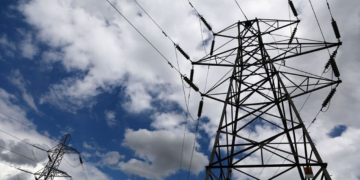The Central Bank of Nigeria(CBN) has said, in line with its aggressive stance towards curbing the soaring inflation in the country, it will be slowing down on its lending to the federal government through ways and means as well as its several interventions to the real sector.
This is even as it said, N3.7 trillion has been repaid out of the N9.3 trillion that it gave out as intervention funds to the various sectors of the economy with over N5 trillion, which are not due for repayment, still outstanding.
Speaking with journalists at a post Monetary Policy Committee meeting media parley, yesterday, several departmental directors of the CBN explained that the aggressive monetary policy is in line with global trends and is targeted at slowing inflation which crossed over to 20.5 per cent in August this year.
Rising from the 287 meeting in Abuja on Tuesday, the MPC members decided to curtail money supply by raising benchmark interest rate by 150 basis points to 15.5 per cent from 14 per cent while Cash Reserve Requirement(CRR) was raised by five per cent from 27.5 per cent to 32.5 per cent.
This, the CBN governor, Godwin Emefiele said, is in a bid to ‘take out liquidity from the vaults of the banks’ ahead of electioneering activities and to curb speculations in the market.
Explaining further on the move, the director, Monetary Policy department of the CBN, Hassan Mahmud said, other steps are also being taken to mop up liquidity from the Nigerian economy.
“Electioneering is another genuine reason for also mopping up now, because when those funds come in with the ones that we are having on ground, then you start seeing too much money within the system that are not going out,” he stressed.
Adding that the financing of government through ways and means that is estimated to be around N20 trillion is a major issue, he said: “we are also very mindful of this and making sure that this is highly moderated because it’s also fuelling the liquidity that we have within the system.”
On his part, CBN director, Development Finance department, Mr. Yila Yusuf, noted that, the apex bank has begun to taper some of its intervention programmes to reduce money supply in the system and has commenced recovery.
“We have lent out N9.3 trillion as at yesterday while N3.7 trillion has been repaid. Most of them are still under moratorium, especially, the manufacturing sector which forms largest part of our portfolio over 31 per cent.
“In the last two to three years, we have moved from agriculture that used to be the biggest buyer of the lending to manufacturing. It takes a very long time you have to order these equipment. You know, you have to put buildings in place, assemble, them, so it takes a long time. So in the last two to three years post COVID that we have lent out quite a significant soul to manufacturing. You begin to see the net effect of all those investments in fourth quarter.
“One of our best performing interventions is a Commercial Agric Credit Scheme (CACS) of which we have lent around N800 billion and almost N700 billion has come back. But there’s also a primary production element which is the Anchor Borrowers Progamme (ABP),” he stressed.
Yila, whilst noting that N1 trillion had been given out under the ABP, said: “we have gotten close to N400 billion. Some of it are small holder famers, and every single person who is taking that loan, is going to pay because we have their BVN. In fact we have started the global standing instruction, the GSI and we will continue to pull their accounts in the banks, or whichever bank that they have accounts and anytime we see any fund we will recover that.
“We have also started recovering loans from state governments. We have been doing a loan workout programme with them, and we are debiting their FAAC directly for the loans. So if a state government has taken N1 billion and is already in default, over a six month period, we are going to be debiting them N150 million every month. So we started that programme.
“Every single loan that has been given out through any of our Intervention Programme must be paid back. There’s absolutely no mercy. So, we are in recovery mode as development finance departments are beginning to recover most of the loan.
Finally, we are working with EFCC. The governor has approved for ourselves and EFCC to set up a desk to help us recover the loads where we are at risk. I mentioned really around ABP and then some of the SME. A lot of people took the targeted credit facility that we give out during the Covid-19 period. So, everybody must pay back. It is only when you pay back that we can have those funds to able to lend back. Then. we will move to a regime where we’ll want to begin to push out funds.”
We’ve got the edge. Get real-time reports, breaking scoops, and exclusive angles delivered straight to your phone. Don’t settle for stale news. Join LEADERSHIP NEWS on WhatsApp for 24/7 updates →
Join Our WhatsApp Channel










